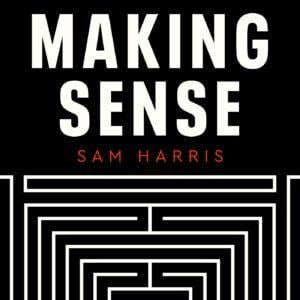
In this episode of Impact Theory with Tom Bilyeu, neuroscientist, philosopher, and five-time New York Times best-selling author Sam Harris discusses living a good life, the importance of well-being, and the power of mindfulness. With his unique background in philosophy, neuroscience, and meditation, Harris offers valuable insights into achieving a calm state and finding meaning in life.
Sam Harris believes that the ultimate goal of humanity should be the flourishing of conscious minds. This involves effortlessly cooperating with creative and happy strangers and building a civilization where everyone thrives. To achieve this, we need to address partisanship, tribalism, and fear of incompatible aims, especially in the presence of destructive technology. The purpose of life, according to Harris, is to see how much of our potential we can actuate and serve others. Having a guiding light or purpose can vary, but extracting psychological satisfaction from philanthropy and being aware of the impact of our actions on others are crucial.
Harris emphasizes the importance of communicating ideas effectively to influence belief systems and promote well-being. Belief systems should align with reality to avoid unnecessary suffering. While a slight self-serving bias can be useful, extreme delusion can be detrimental. It’s important to be open to new evidence and better arguments perpetually, as human conversation is the only mechanism for error correction and understanding reality.
Mindfulness meditation is a powerful tool for managing anxiety and emotional control. By paying close attention to one’s experience without reacting, individuals can drop lower and realize there’s a place from which they can be indifferent to anxiety. Framing negative emotions can lead to psychological freedom and a shorter duration of negative emotions. Anxiety and excitement are closely related in physiology, with the difference lying in the framing and story individuals tell themselves.
Tim Ferriss shares his approach to learning and consuming information, which involves interrupting negative states by focusing on something else. With the exponential increase in available information, individuals must be selective in their consumption. The speaker highlights the importance of being a fickle reader, discarding books early if they don’t resonate. Constant consumption of information through various mediums can lead to continuous learning and growth.
Meditation is compared to Jiu Jitsu for the mind, allowing individuals to gain control and minimize reactivity. Brazilian Jiu-Jitsu (BJJ) is seen as a practice of breaking the spell of being attacked by thoughts and reactivity. The ego is perceived as a mask, and individuals can explore their true experiences by becoming witnesses rather than being identified with their thoughts. Meditation and self-exploration offer opportunities for personal growth and a deeper understanding of oneself.
In this episode, Sam Harris provides valuable insights into living a good life, effective communication, mindfulness, reading, and meditation. By striving for the ultimate flourishing of conscious minds and addressing societal challenges, we can build a civilization where everyone thrives. Harris emphasizes the importance of aligning belief systems with reality and being open to new evidence and better arguments. Mindfulness and emotional control can lead to psychological freedom, and selective reading and continuous learning are essential in the information age. Finally, meditation and self-exploration offer opportunities for personal growth and a deeper understanding of oneself.